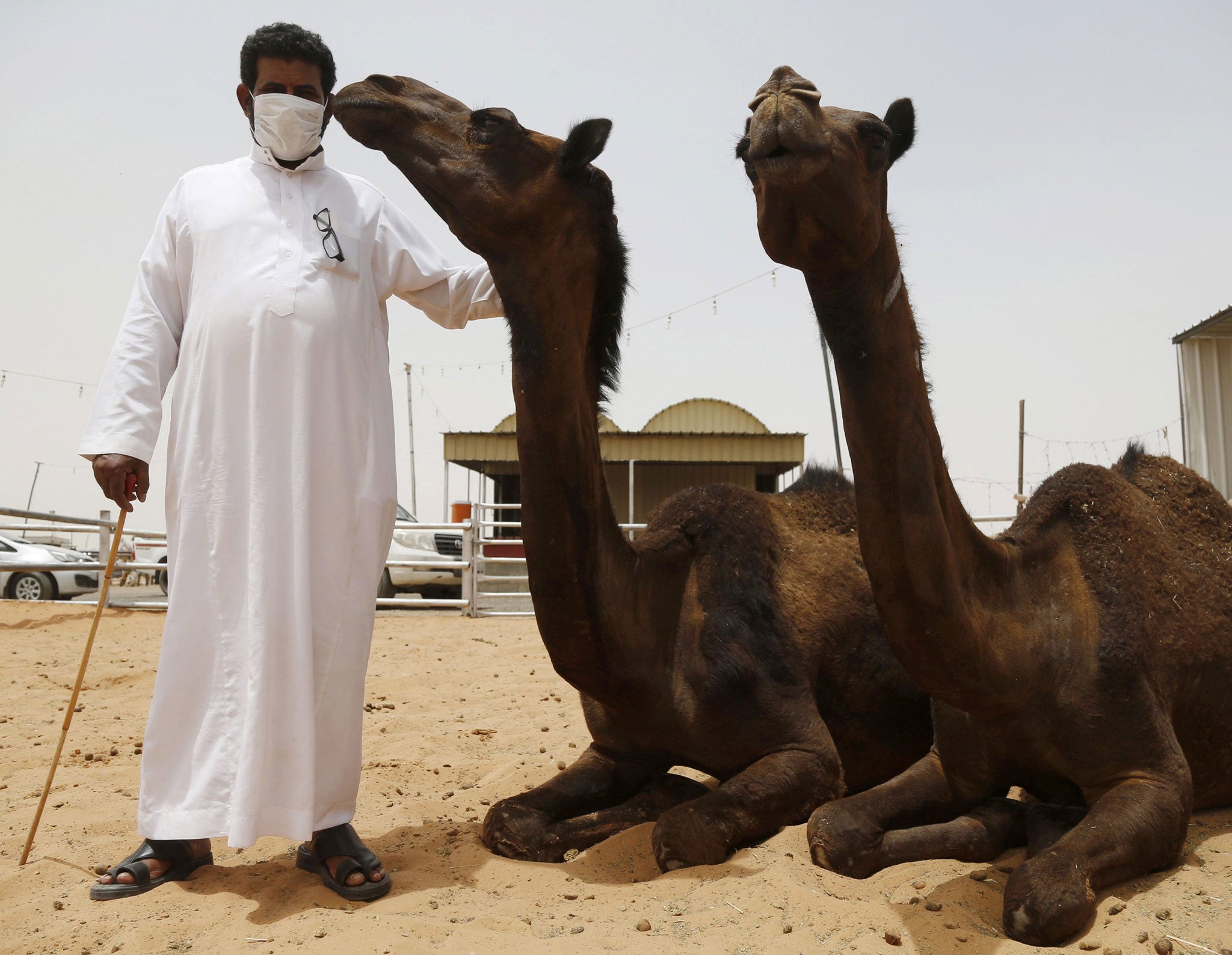Saudi Arabia issues deadly Mers warning and tells all people handling camels to wear face masks and gloves
First such warning as cases of virus reach 500 and amid fears it could spread further afield

Your support helps us to tell the story
From reproductive rights to climate change to Big Tech, The Independent is on the ground when the story is developing. Whether it's investigating the financials of Elon Musk's pro-Trump PAC or producing our latest documentary, 'The A Word', which shines a light on the American women fighting for reproductive rights, we know how important it is to parse out the facts from the messaging.
At such a critical moment in US history, we need reporters on the ground. Your donation allows us to keep sending journalists to speak to both sides of the story.
The Independent is trusted by Americans across the entire political spectrum. And unlike many other quality news outlets, we choose not to lock Americans out of our reporting and analysis with paywalls. We believe quality journalism should be available to everyone, paid for by those who can afford it.
Your support makes all the difference.Saudi Arabia has issued a rare public health warning to anyone handling camels as the country struggles to contain cases of a potentially deadly respiratory virus.
More than a quarter of those diagnosed with Middle East Respiratory Syndrome (Mers) have died, and as well as around 500 cases in the kingdom it has also spread to Europe and the US – where the first case was confirmed last month.
Health experts have warned that camels are the most likely animal source for the infection, which currently only rarely transfers from person to person.
The kingdom’s agriculture ministry issued a statement via the official Saudi Press Agency today which advised people to “exercise caution and follow preventive measures” when dealing with the animals, the first time it has done so in the time since Mers was first reported two years ago.
The country has a special association with camels based on its historically nomadic culture, and has reportedly largely avoided the issue of a link between Mers and the animals despite extensive research overseas.
Officials now warned the public to avoid coming into contact with camels unless strictly necessary, to wash their hands before and after if doing so and to wear face masks and gloves.
The guidance came after the country reported six more deaths from Mers on Saturday. A total of 139 people have died and 480 have been confirmed to have contracted the virus in Saudi Arabia since it was discovered in 2012.
Mers is a coronavirus, part of a family of illnesses that includes both the common cold and Sars, which originated in animals in China and spread to kill around 800 people worldwide in 2002.
There has been increasing public unease in Saudi Arabia amid social media rumours about a lack of transparency from officials about the spread of the disease.
The recent surge in cases is also of wider international concern, not least because of the influx of visitors from around the world expected in July during the Muslim fasting month of Ramadan, and again during the annual Haj pilgrimage in October.
The World Health Organisation has said that Mers outbreaks at two of Jeddah’s main hospitals could partly be blamed on breaches of its recommendations for infection prevention, and the head of the King Fahd Hospital has now been replaced, the health ministry said.
The health ministry first linked Mers with camels at a news conference last month, but workers at Riyadh’s main animal market then told reporters they had heard no advice from officials themselves.
The European Centre for Disease Prevention and Control’s (ECDC) most recent report on Mers, dated 6 May, said that there had been four reported cases in the UK, of which three resulted in deaths.
All “primary” causes have been traced to the Middle East, and while the ECDC said it expects importation of the virus to continue the risk of secondary transmission within the EU remains “low”.
Join our commenting forum
Join thought-provoking conversations, follow other Independent readers and see their replies
Comments